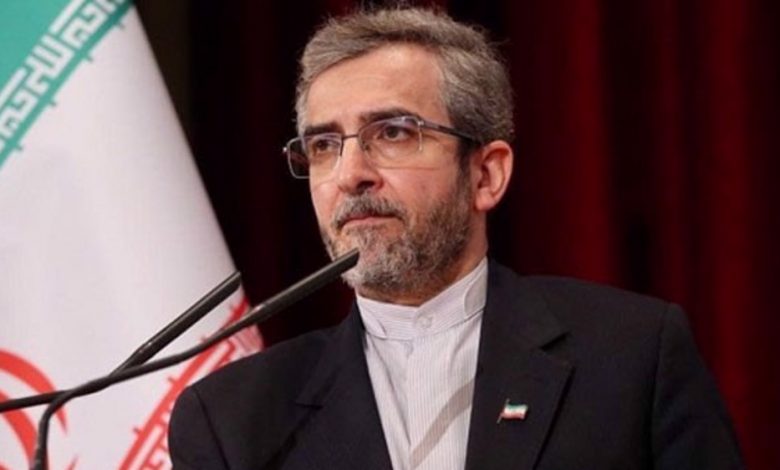Purpose of new talks is to remove sanctions on Iran
Iran’s top negotiator says the main purpose of forthcoming negotiations between Tehran and remaining parties to the 2015 nuclear deal in the Austrian capital Vienna is the removal of all sanctions imposed on Iran by the United States.

“The main purpose of these talks from the Islamic Republic of Iran’s standpoint is to remove the illegal sanctions imposed on the Iranian nation by the US government in blatant violation of the JCPOA (the Joint Comprehensive Plan of Action) and the UN Security Council Resolution 2231,” Ali Baqeri-Kani, Iranian deputy foreign minister for political affairs, said in an exclusive interview with Press TV in London.
Baqeri-Kani once again stressed that the upcoming talks will not be about the nuclear issue, which has already been resolved, but will rather focus on the US withdrawal from the 2015 multilateral deal and the termination of its illegal sanctions against the Islamic Republic.
“What Americans did by leaving the nuclear deal was not only in violation of the JCPOA, but also the UN Security Council Resolution 2231. The objective of the negotiations is to remove US sanctions, both slapped in the past and in the wake of their withdrawal from the nuclear deal,” he noted.
The senior Iranian diplomat explained that the remedial measures that Tehran took in response to the US withdrawal from JCPOA are within legal rights stipulated in Article 26 of the nuclear deal, which grants a party the right to suspend its contractual commitments in case of non-compliance by other signatories and let go of some of the restrictions imposed on its nuclear energy program.
He said Iran is seeking practical guarantees that the international deal would not be violated by the United States anymore.
“Not only did they (Americans) hurt Iranian by withdrawing from the nuclear deal, violating the UN Security Council Resolution 2231 and imposing sanctions on Iranians, but also harmed parties to the deal as they had business transactions and contracts with Iran,” Baqeri-Kani said.
He lauded his recent conversations with the political officials from France, Germany and the United Kingdom as being straightforward and serious.
“Those conversations were clear and progressive. I shared our perspective on the necessary framework for the upcoming talks in an unequivocal and very transparent manner. I also shared with them what our expectations of the upcoming negotiations are,” Iran’s top negotiator pointed out.
“What is important for these European countries is to pursue their own interests rather than those of anyone else,” Baqeri-Kani said.
The Iranian diplomat also hailed his talks with officials from the UK Foreign Office as positive, stating that the two sides had comprehensive discussions on bilateral relations, regional issues and future sanctions-removal talks.
Envoys from Iran and the P4+1 group of countries — Britain, France, Russia, and China plus Germany — are expected to hold the seventh round of discussions in the Austrian capital on November 29.
The negotiations were paused in June, when Iran held a presidential election. Since then, the new Iranian administration has been reviewing the details of the six rounds of discussions held under the previous administration.
Former US President Donald Trump left the JCPOA in May 2018 and re-imposed the anti-Iran sanctions that the deal had lifted. He also placed additional sanctions on Iran under other pretexts not related to the nuclear case as part of his “maximum pressure” campaign.
Following a year of strategic patience, Iran resorted to its legal rights under the JCPOA, which grants a party the right to suspend its contractual commitments in case of non-compliance by other signatories, and let go of some of the restrictions imposed on its nuclear energy program.
The US administration of Joe Biden has said it is willing to compensate for Trump’s mistake and rejoin the deal, but it has shown an overriding propensity for maintaining the sanctions as a tool of pressure.
Tehran insists that all sanctions must first be removed in a verifiable manner before the Islamic Republic reverses its remedial measures.







